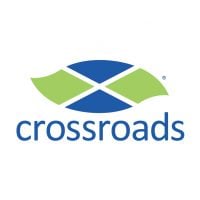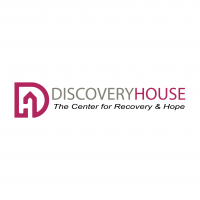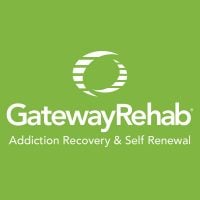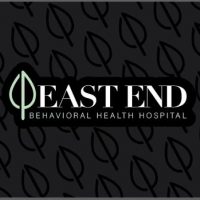Addison Behavioral Care
Drug Rehab Center in Pittsburgh, Pennsylvania
- Opioid Addiction
- Dual Diagnosis
- Drug Addiction
- Alcoholism
Addison Behavioral Care is a top-rated addiction treatment center in Pittsburgh, PA that offers comprehensive care and aftercare support to those struggling with alcohol, drug, and opioid addiction.
Multiple patients have reported Addison Behavioral Care as permanently closed.
Research other rehabs in Pittsburgh, Pennsylvania, or get help finding an open facility.
Our experts will find you an alternative facility.
(888) 674-0062 24/7 Free, Confidential, Expert HotlineAbout Addison Behavioral Care in Pennsylvania
Addison Behavioral Care in Pittsburgh, Pennsylvania is a drug treatment facility that specializes in providing support and treatment for individuals struggling with alcoholism, dual diagnosis, opioid addiction, and drug addiction. The facility is dedicated to helping people overcome their substance abuse and achieve sobriety. Addison Behavioral Care offers a range of programs and levels of care to cater to the specific needs of each individual. With a team of experienced professionals, they strive to create a safe and supportive environment where individuals can work towards recovery and receive the necessary tools and resources to maintain a sober lifestyle.
At Addison Behavioral Care, individuals struggling with addiction have access to a variety of services and treatment methods to aid in their recovery journey. The facility offers aftercare support, which helps individuals transition from the intensive treatment phase to a more independent and stable life after rehab. They also provide drug rehab programs that utilize evidence-based approaches to address addiction and promote long-term recovery. Additionally, Addison Behavioral Care offers intensive outpatient and outpatient levels of care, allowing individuals to receive treatment while still being able to maintain their daily responsibilities. Their treatment methods focus on addressing the underlying issues contributing to addiction, providing counseling and therapy sessions to help individuals develop coping skills, and offering support groups to connect with peers facing similar challenges.
Genders
Ages
Modality
Additional
Conditions and Issues Treated
Opioid addiction starts when a person becomes addicted to legal or illegal opioids. The addiction can happen quickly, in just a matter of days. Opioid withdrawal can be extremely uncomfortable and lead the user to continue to use even if they want to quit. Stopping using an opioid requires medical observation. Sometimes inpatient treatment with a medically supervised detox is necessary for managing the withdrawal process while learning lasting tools for maintaining recovery. Medications may be used in some cases of opioid addiction.
Opioid addiction is one of Pennsylvania‘s most prominent forms of addiction. It’s treated by detoxifying the body so that the chemicals from the medications no longer impact them and by therapies to correct behavior and target the root of the problem.
Levels of Care Offered
This center offers a variety of custom treatment tailored to individual recovery. Currently available are Aftercare Support, Drug Rehab, Intensive Outpatient, Outpatient, with additional therapies available as listed below.
Addicts who need help with their addiction can enroll in an intensive outpatient program (IOP). But the patient won’t live there during treatment.
IOP involves patients visiting a medical office building regularly for therapy and other services while continuing to live their lives.
IOP is a step up from drug or alcohol detox, but it’s still a phase of recovery, not the end goal. Patients in need of IOP have many options for rehab and treatment.
Outpatient treatment is considered the lower intensity level of addiction treatment. It’s ideal for early phase addiction or lower intensity addictions. It may include weekly sessions instead of daily. It may include weekly sessions instead of daily. Peer group support, 12-step programs, and individual counseling may still be involved but at a lesser frequency than an intensive outpatient program. It is a good choice for someone who doesn’t need to go through a medically supervised detox and who has a supportive home environment. It requires motivation and dedication to commit to the program without constant monitoring.
Aftercare support should take place after outpatient treatment has ended. There are a few different types of aftercare support that patients can seek. These include 12 Step, Self-help groups (AA, NA), Therapeutic communities, Long-term, structured sober living arrangements, and Halfway houses (residential treatment centers).
Therapies & Programs
Individual therapy involves one-on-one sessions between the patient and therapist. It provides patients with a safe environment to openly discuss personal and sensitive issues with the therapist. They find the therapist as someone they can trust. Individual therapy aims to identify the core issues that would have led the patient to substance abuse and address them effectively. The therapist can develop patient-specific customized solutions through individual therapy, which aids speedier recovery.
Family therapy is a group problem-solving that aims to improve communication and relationships between the addict, their family, and sometimes friends. The main goal of family therapy for drug addiction is to create an environment where communication can occur without judgment, hostility, or blame. The therapist is with the family as they learn to communicate differently, especially with the addict when s/he is using. The family can learn to reduce their enabling behavior or rally together and support each other during tough times.
An addict’s family can play a vital part in helping them to avoid relapse because they can spot the warning signs and help them get back on track before it becomes too much of a problem. Family therapy is one of the most effective ways to help addicts stay on the path to long-term sobriety. When a drug addict decides that they want to try and get sober, it takes the support of every person they love to succeed. It can be incredibly difficult for loved ones to watch an addict go through the pain and suffering of withdrawal, but by being there with them and supporting them, they can help to make sure that the addiction never returns.
Groups typically involve meetings with other recovering addicts who can relate to one another’s experiences. They might meet in person or online and typically focus on the process of staying sober rather than overcoming a specific addiction.
In these groups managed by Addison Behavioral Care, addicts can build a sense of community and develop strong emotional connections with others who understand what they are going through. These beneficial relationships can help addicts overcome their cravings and prevent relapse at any point during the recovery process.
Payment Options Accepted
For specific insurance or payment methods please contact us.
Additional Details
Specifics, location, and helpful extra information.
Pittsburgh, Pennsylvania 15206 Phone Number(412) 661-6636 Meta DetailsUpdated November 25, 2023
Staff Verified
Addison Behavioral Care Patient Reviews
There are no reviews yet. Be the first one to write one.
Pittsburgh, Pennsylvania Addiction Information
Pennsylvania ranks 14th in the nation for drug-related deaths. More than 10% of all deaths in Pennsylvania have been related to drugs and alcohol. 30% of Pennsylvania youth reportedly drink alcohol monthly, with more than 20,000 teenagers having an alcohol problem. The rate of opioid misuse in Pennsylvania is double the national average.
Pittsburgh, Pennsylvania, has been hit hard by the opioid epidemic. About 24,000 people in Pittsburgh struggle with drug addiction. In the city, there were 9,813 overdose deaths in 2016. Alcohol is a factor in more than 38% of all traffic fatalities in Pittsburgh. There are plenty of drug treatment centers in the area to help you get your life back on track.
Treatment in Nearby Cities
- Franklin, PA (64.9 mi.)
- Clarion, PA (59.2 mi.)
- Mercer, PA (55.4 mi.)
- New Bloomfield, PA (144.2 mi.)
- Linesville, PA (86.5 mi.)
Centers near Addison Behavioral Care



The facility name, logo and brand are the property and registered trademarks of Addison Behavioral Care, and are being used for identification and informational purposes only. Use of these names, logos and brands shall not imply endorsement. RehabNow.org is not affiliated with or sponsored by Addison Behavioral Care.





